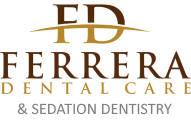Preventive dentistry is a branch of dentistry that focuses on preventing dental problems before they occur. It is an important aspect of oral health care that involves taking steps to maintain the health and function of your teeth and gums.
There are several different types of preventive dental care, including:
Professional dental cleanings: Professional dental cleanings, also known as prophylaxis or prophy, involve the removal of plaque and tartar from the teeth to prevent the development of cavities and gum disease.
Fluoride treatments: Fluoride is a naturally occurring mineral that helps to strengthen tooth enamel and prevent tooth decay. Fluoride treatments can be applied topically to the teeth in the form of toothpaste, mouthwash, or gels.
Dental sealants: Dental sealants are thin, protective coatings that are applied to the chewing surfaces of the back teeth to protect them from decay.
Oral hygiene education: Oral hygiene education involves teaching patients how to properly care for their teeth and gums at home, including how to brush and floss effectively.
By practicing good preventive dentistry, you can help to maintain the health of your teeth and gums and prevent the development of dental problems. It is important to see a dentist regularly for preventive care and to follow a good oral hygiene routine at home.
Here are some of the reasons you might want dental sealants.
Dental sealants are a preventive dental treatment that involves applying a thin, protective coating to the chewing surfaces of the back teeth. Here are a few reasons why you might want to consider getting dental sealants:
To prevent tooth decay: The deep grooves and pits on the surfaces of the back teeth can be difficult to clean, which makes them more prone to tooth decay. Dental sealants can help to protect these areas by creating a barrier that prevents bacteria and food particles from getting stuck in the grooves and causing decay.
To save time and money: Dental sealants can save you time and money in the long run because they can help to prevent the need for more expensive and time-consuming treatments, such as fillings and crowns, which may be required if tooth decay is allowed to progress.
To improve oral health: By protecting your teeth from decay, dental sealants can help to improve your overall oral health. This can lead to fewer dental problems, less time spent in the dentist’s chair, and a brighter, healthier smile.
To protect your child’s teeth: Children’s teeth are especially prone to decay, especially in the back teeth where it can be difficult for them to brush effectively. Dental sealants can be a great option for protecting your child’s teeth and helping to prevent decay.
If you are interested in getting dental sealants, it is important to talk to your dentist to determine if they are the right option for you.
